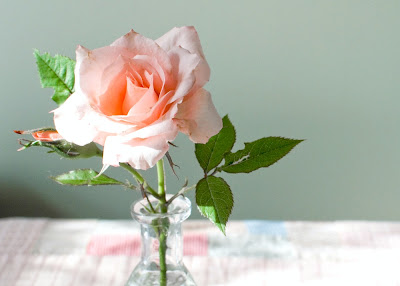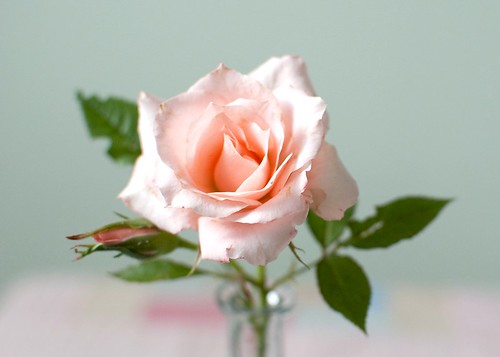

Scent
Hi Everyone -
We're printing in class now and it's pretty exciting to hold some actual photos in my hands. It's strange, but most people rarely have their digital photos printed, including me. Sometimes, it can be a nightmare because the image might look terrific on your monitor, but awful once printed. The photos above might not make the cut in the scent category for that very reason. And, don't get me started on white balance - ugh! I do have some general tips that usually don't give me anything to complain about and I hope they do the same for you -
Download & Backup
Our teacher told us about a student who had 700 photos on her memory card. She hadn't downloaded them to her computer. When it was time to download her work to the computers at school using a memory card reader the card broke in half! All 700 pictures were lost. Could you imagine? What if you lost your camera? So, regularly download your photos to your computer even if you don't work on them right away. Also, please be sure to backup your hard drive. All of these things are machines, and just like us, sometimes they breakdown.
Tripod
When I first starting taking still life photos of my sewing projects I never used a tripod for my indoors/lowlight shots. I read about how it was essential, but was sure I was steady enough to hold still. I could hold my breath. Wrong! It takes a little bit of getting used to, but the tripod will ultimately become like a third hand, especially if you add in a wireless remote control. Give it a name and you'll have two members on your team. Your first crew member!
Photo Editing Programs
My version of Photoshop was too old for our new computer and I couldn't justify spending $800 for the newest version. I've used Picasa/iPhoto and you can do quite a bit with them. Piknik looks really good, too. Ultimately, I want to do more with filters and purchased Adobe Elements for $75. It's similar to Photoshop, but not as fancy. It gives you the ability to create layers, which is what is necessary for adding textures, filters, etc.
In class, we use Adobe Lightroom ($200) and it's pretty awesome. We can do quite a bit of photo editing, but it has no layer capability. It's also great for organizing your photos and printing is breeze if you can get the image just right for printing, of course.
Equipment
When I bought my DSLR I didn't want to be a gear head lugging around all this equipment and got the bare minimum. Basically, the camera kit, memory card ($10) and a UV filter ($10). The only things I've added are a 35mm prime lens (no zoom), wireless remote control ($10), memory card reader ($10), and a polarizing filter ($20)). I like the prime lens because it's small, and with no zoom capability, I move around more. Regardless of the story above, the card reader is safer than connecting your camera directly to your computer. The polarizing filter is fantastic for outdoor shots (blue skies love them) and it reduces glare from reflective surfaces like water and glass. You can address this in some photo editing programs, but it's not the same. A lens hood is also often recommended as it prevents light from hitting the front of the lens reducing contrast and creating richer colors. Like the filters, it also protects the lens.
Projects
I've always come up with projects for myself. It's a good way to really get to know a subject and it can be anything you like to photograph. Plus, it's a great opportunity to be your own boss ;). If you love the outdoors, focus on trees from all different angles, different lights, types, etc. The reason photographers like Ansel Adams and Richard Avedon were so successful is partially because they took a lot of photos of similar subjects.
Great Tips
Pioneer Women Photography has really great tutorials on everything from basic photography to Photoshop actions.
Ken Rockwell thoroughly reviews all types of cameras. He's a professional, but basically recommends the Nikon D40 for a DSLR and a Canon SD880 for a point & shoot camera. I resisted getting a new point & shoot and opted for a 35mm prime lens instead.
NUBS has great prices on computer software for students, teachers and schools.
Let me know if you have any questions!
xo, Cindy
PS There is one more thing I need and that's one LCD optical glass screen protector ($10). This thin film looks better to me than the kind that snap on.

19 comments:
THIS is a great post Cindy..thanks so much for sharing what you've learned in your course and what you've figured out yourself as well...I'm ready for YOUR book to come out, "One Girl's Affair with her Camera"...
I know what you mean about the way something prints looking vastly differrent than on the monitor. Sometimes I print poster size images and I am shocked at what I did not see on the monitor. I think that's why it is good to have a really big monitor or blow the image image up to the size you'll print to see what details you might be missing...still a tough one.
I use Lightroom and then have to get rid of spots and things in Photoshop, especially for the Bonbon Model shots and Lookbooks...still haven't figured out a way around it...
last...love the pic above--i can actually smell that rose!
love the depth of field in that shot! Great tips! Have been wondering about filters- have really been wanting to get a Nikon would love a D300! ps adjusting the white balance always leaves me frustrated too!
I know what you mean about using a tripod! I was convinced that I looked like the silliest person dragging my tripod around with me. But it really is essential and makes a huge difference.
Hello!
I just had to come and say hi - I can remember ages and ages ago coming across a photo of your cute little work room, and wondered if you had a blog...and you do!
I love your house and photosxxx
Samxx
Thanks for all of the pointers. I'm starting to get into this stuff more seriously, and I could use all of the help I can get!
BEAUTIFUL pale pink roses shot!
amen to download and backup!! i have lost many files due to one fateful incident.... sigh... and now i FINALLY got an external harddrive to back up my computer files... no issues with cameras though [that is cuz i dont have one]...
sounds like classes are great!! your photos are BEAUTIFUL!!!!!!!!!
I think you've answered any question I could have thought up! Thank goodness I know where to reach you in case I come up with others!
Have a great weekend, darling, and again, thank you for all the hugs this week!
XOXO
cindy thank you so much for taking the time to share your learnings with us. i have passed this on to many people who have ask me how. you are a great teacher as well.
Cindy, this post is pitch-perfect. Thank you for all of these wonderful tips. I am in the market for a tripod and a remote, but I think the polarizing filter should go on my list as well. Also, I am a big fan of picnik for online editing. Although I love Photoshop (and all of the Adobe CS, for that matter), there is something so satisifying about the fun effects you can use through Picnik.
Have a great weekend!
k
I'm new to your blog and have been drinking in the photos of the flowers (love the white rooms as well). Thanks for your photo taking tips. I'll be back for more.
this all made my head spin! no wonder your photos look so great with all of this knowledge under your belt!
beautiful shots Cindy! Thank you so much for all the info, now I'm really worried about taking my friend's wedding pictures. I have 6 months to learn!! Have a golden weekend my friend! xoxoxo
as always, amazing! i've been thinking about a tripod but after reading what you say ... i think i need one! happy weekend!
A lot of interesting information - again!! Thanks, so much! I will definitely check out those links!
As to my gear:
I bought my very first DSLR about half a year ago - the basic kit: a Nikon D40 + 2 kit lenses. I recently added a prime lens: the AF Nikkor 50mm/1:1.8D and I'm pretty pleased with it - it sure does make you move around more, but it gives clean and crisp shots and interesting DoF possibilities. I would love to buy a real macro lens though, but they're so expensive... Any idea if/how extension tubes work?
I have a very old tripod, a bit bulky, not the kind of thing you take on a walk - I use it at home only, usually in the second stage after I have figured out in a first stage if what I had in mind, actually "works". I did get a remote control too - but haven't used it very often yet.
I don't have any filters - but you've made me wondering about them... maybe something to add to my list ;)
Although I bought Adobe Photoshop Elements 7.0 recently (on sale), I still "process" most of my pictures in Picasa. Need to get a book for Elements, especially since my version is in French...
thank you, thank you, thank you for all the tips, cindy! i feel like i'm getting so many benefits from the class you are taking and all the experience you have!
Thanks Cindy for sharing these wonderful tips with us. I just ordered photoshop, and it should get here soon...I'm so excited about all the possibilities.
Oh and you totally made my day with the whole 28 is the new 8. :) Hope you're enjoying your weekend!
Thanks for all the photo tips! Printing is so fun. I miss those darkroom days. And I agree - Pioneer Woman is great for photo editing tips and I love hear Photoshop actions!
Post a Comment